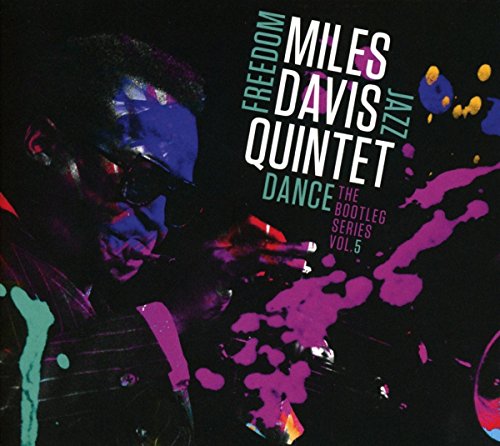
Miles Davis
Miles Davis Quintet: Freedom Jazz Dance: The Bootleg Series, Vol. 5
Release Date: Oct 21, 2016
Genre(s): Jazz
Record label: Sony Legacy
Music Critic Score
How the Music Critic Score works
Buy Miles Davis Quintet: Freedom Jazz Dance: The Bootleg Series, Vol. 5 from Amazon
Album Review: Miles Davis Quintet: Freedom Jazz Dance: The Bootleg Series, Vol. 5 by Miles Davis
Fantastic, Based on 4 Critics
Based on rating 5/5
This three-CD box set contains Davis’s 1966-68 studio work with his glorious second quintet (Wayne Shorter, Herbie Hancock, Ron Carter, Tony Williams). This was the band that seemed to function on pure instinct, without the usual safety net of chord sequences and so on. How did they do it? Well, more than two hours of unreleased session reels, while fascinating to listen to, don’t reveal many secrets.
Based on rating 5/5
“Teo, I can’t play this shit, man,” complains a frustrated Miles Davis to his long-suffering producer, Teo Macero, during the recording session in October 1966 that birthed the classic Miles Smiles. His young quintet (comprising the formidable talents of Wayne Shorter, Herbie Hancock, Ron Carter and Tony Williams) had been trying a run-through of Eddie Harris’ Freedom Jazz Dance, trying to master its snaking, intricate theme, but the performance breaks down after a few bars. Macero’s response to Miles is an encouraging “Yes, you can,” and then we hear Miles and his cohorts persevere until they get it right.
Based on rating 7.5/10
Freedom Jazz Dance, the latest volume in Columbia Legacy’s Miles Davis Bootleg Series, opens with a discussion. It’s October 24, 1966, and Miles and bassist Ron Carter are working out a bass line until Miles interrupts and scolds him gently: “No,” Miles rasps, “that’s too common. C’mon.
Opinion: Fairly Good
Freedom Jazz Dance documents the Miles Davis Quintet’s studio takes, rehearsals, and talk that laid the foundation for Miles Smiles (1967) as well as later albums Nefertiti (also ’67) and Water Babies (1976). We hear Miles in his gravelly voice frequently turn to producer Teo Macero: “Let me hear that, Teo. F*ck!” It’s fun, it’s funny, and it’s informative in understanding the process of making music, some of which is now considered classic.
'Miles Davis Quintet: Freedom Jazz Dance: The Bootleg Series, Vol. 5'
is available now

